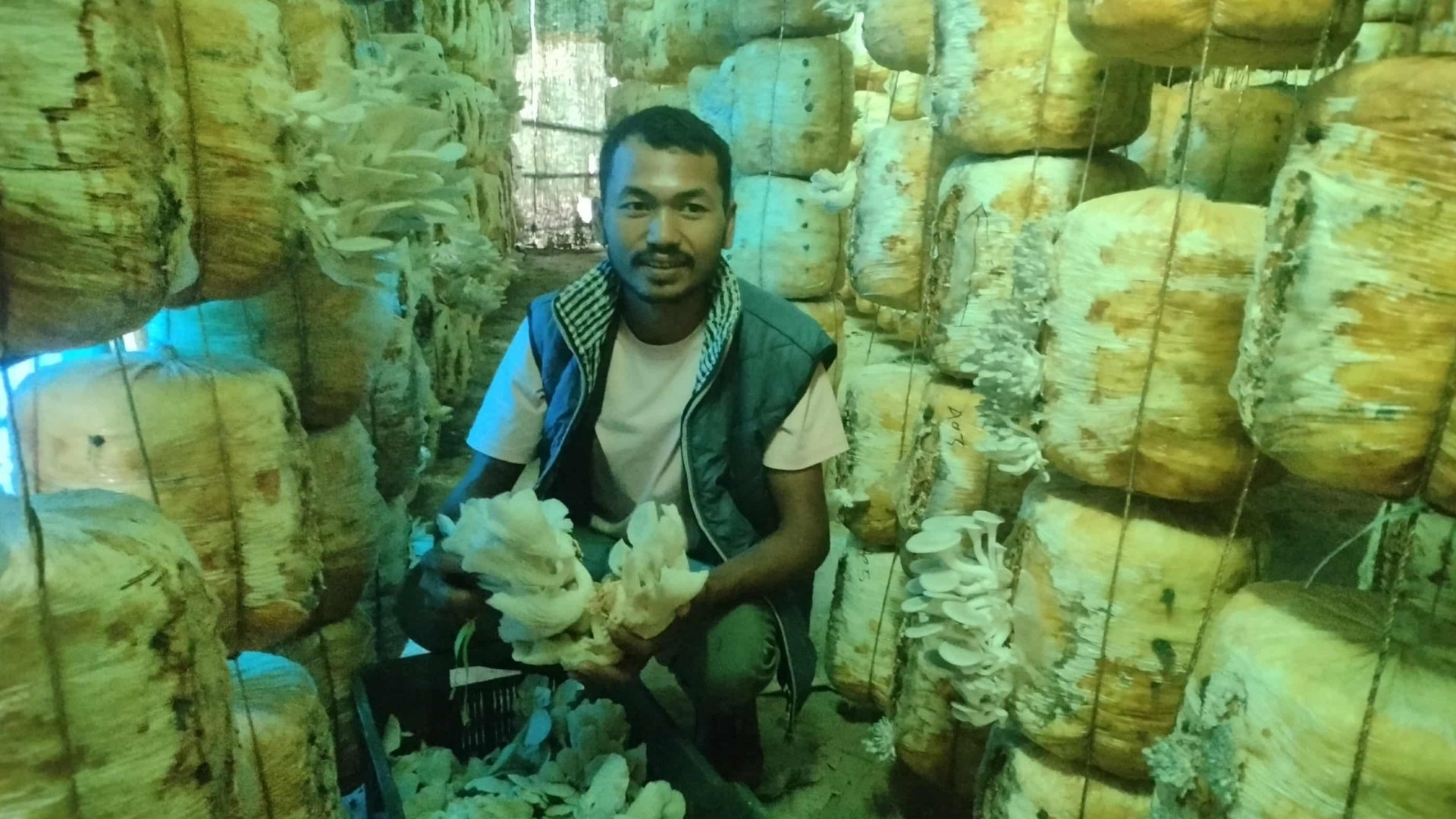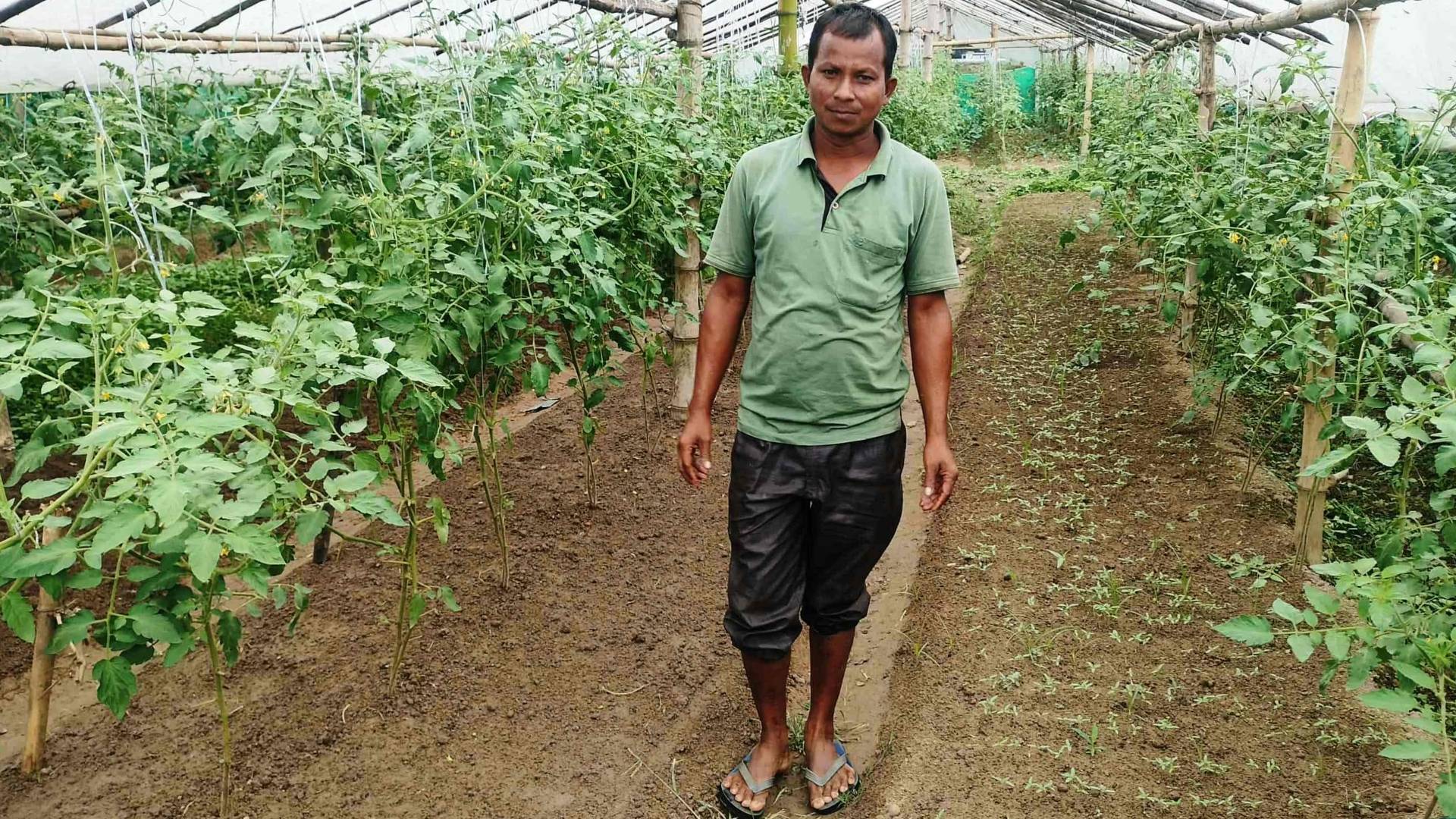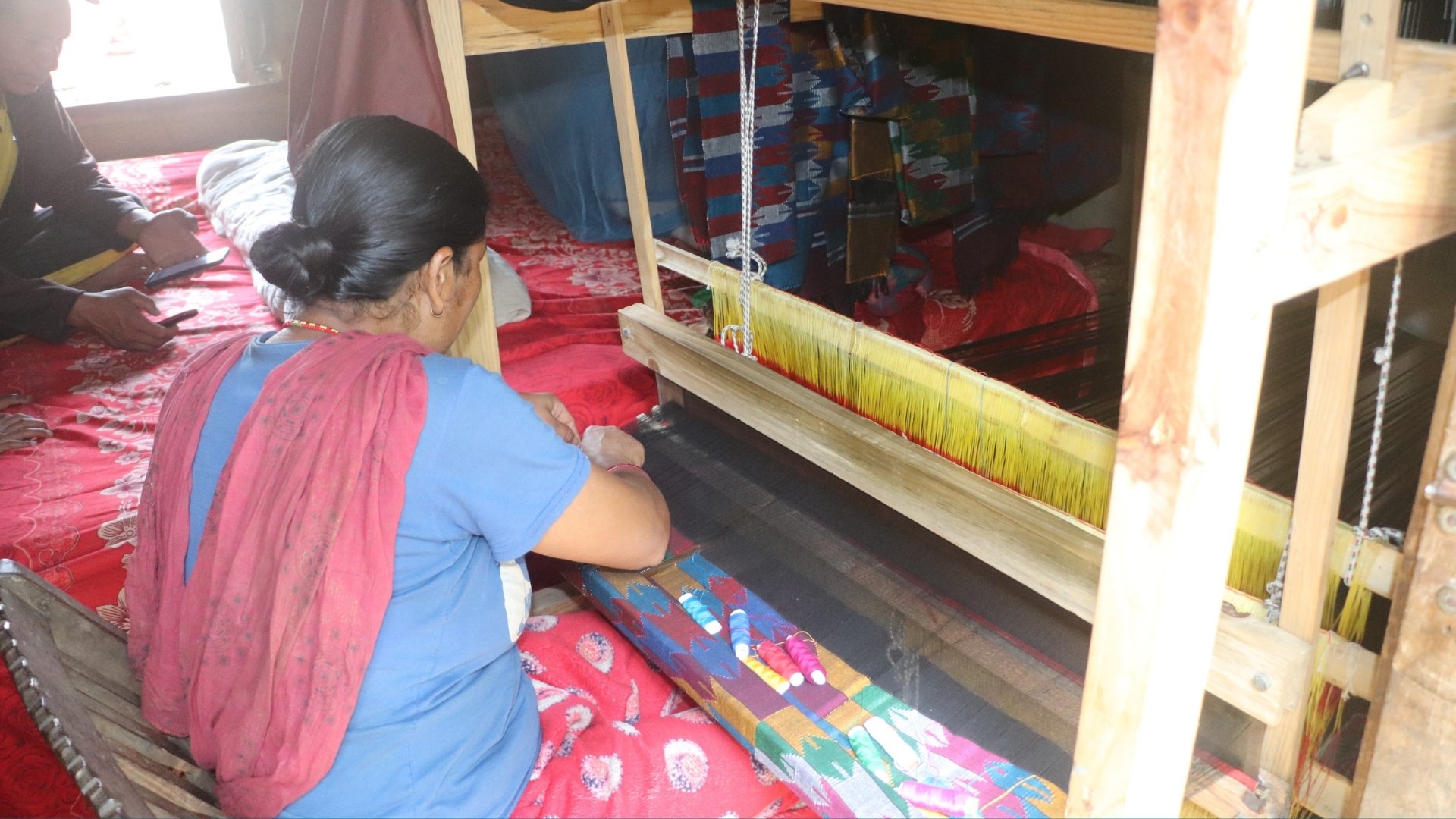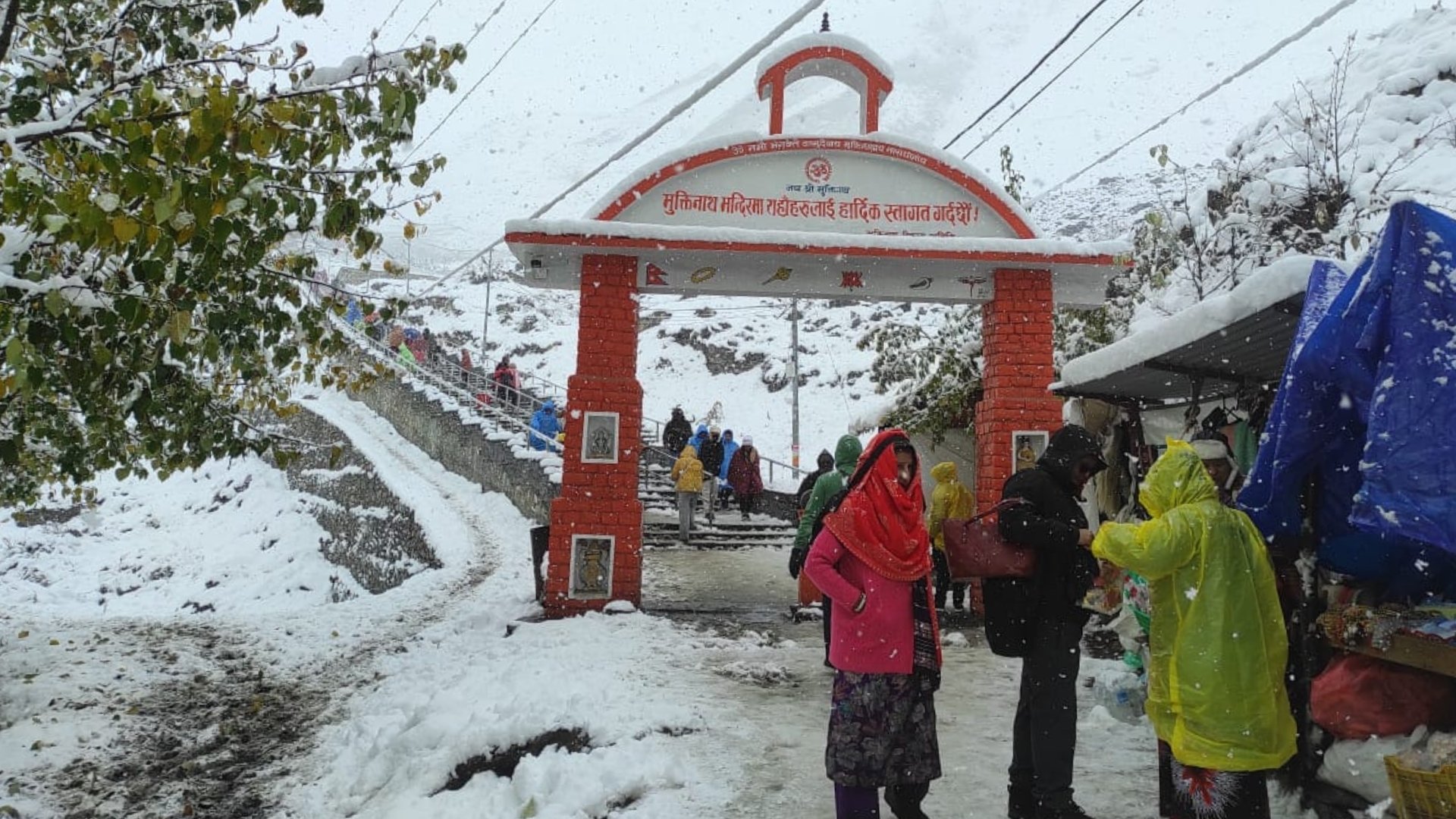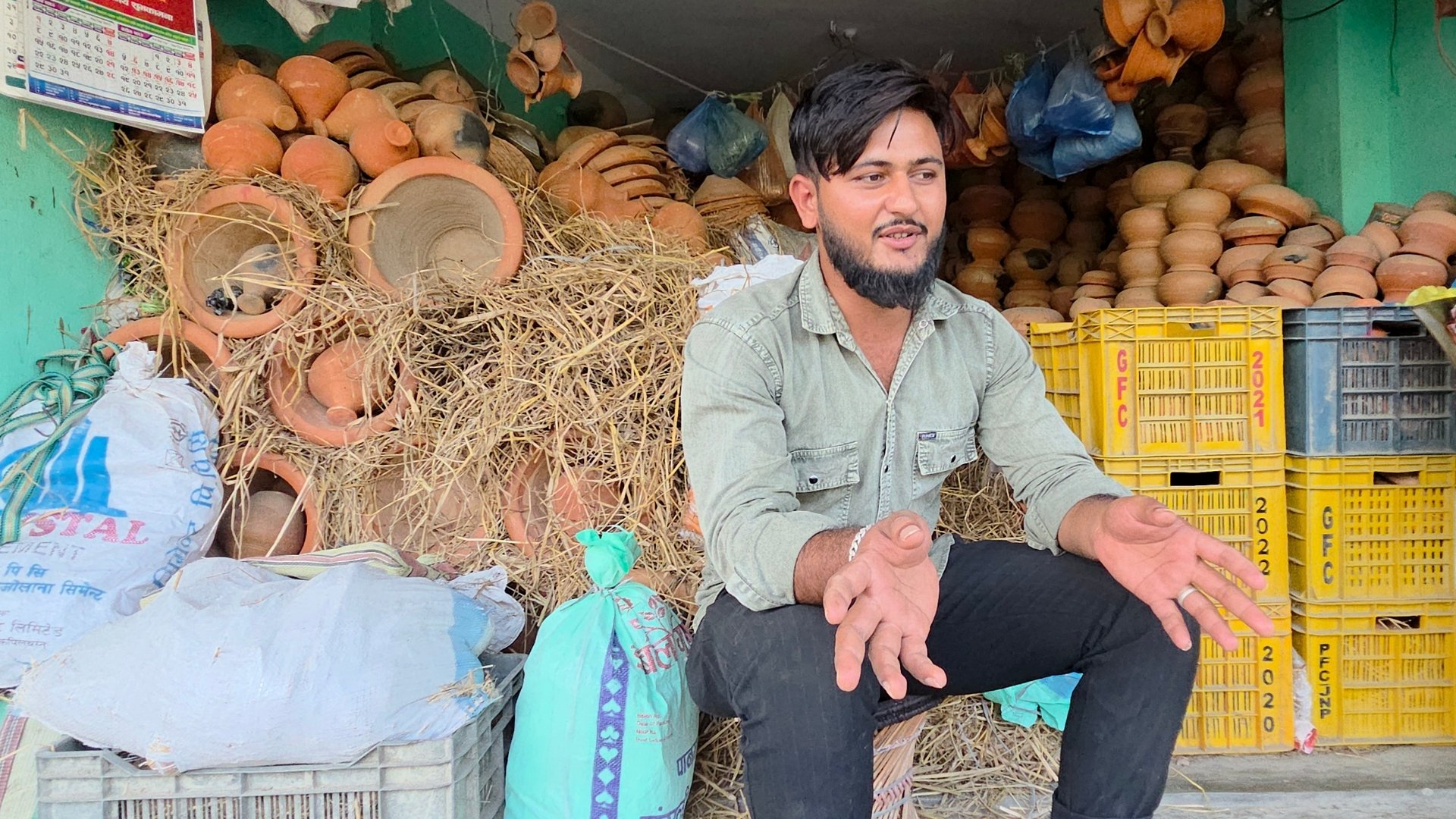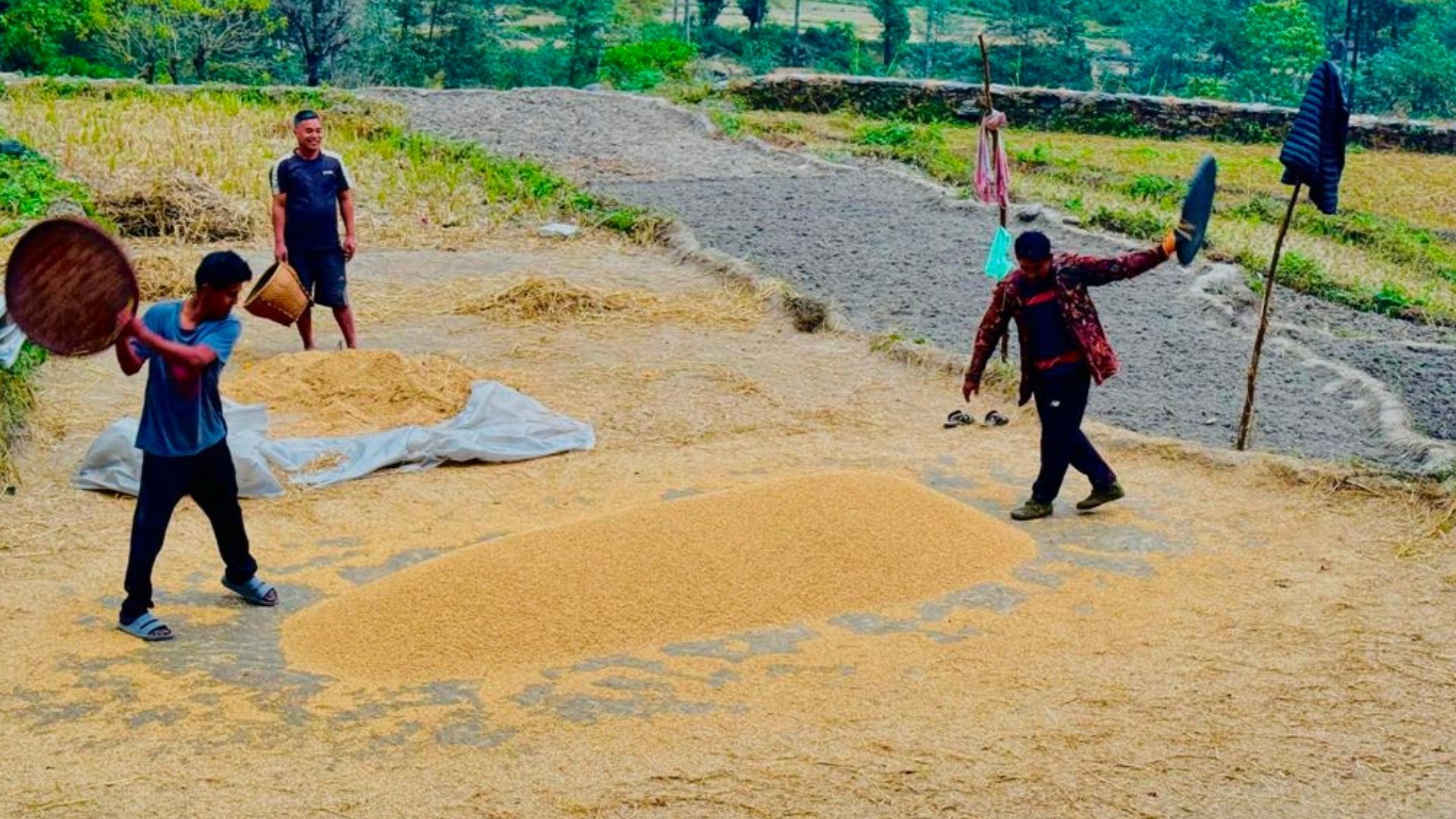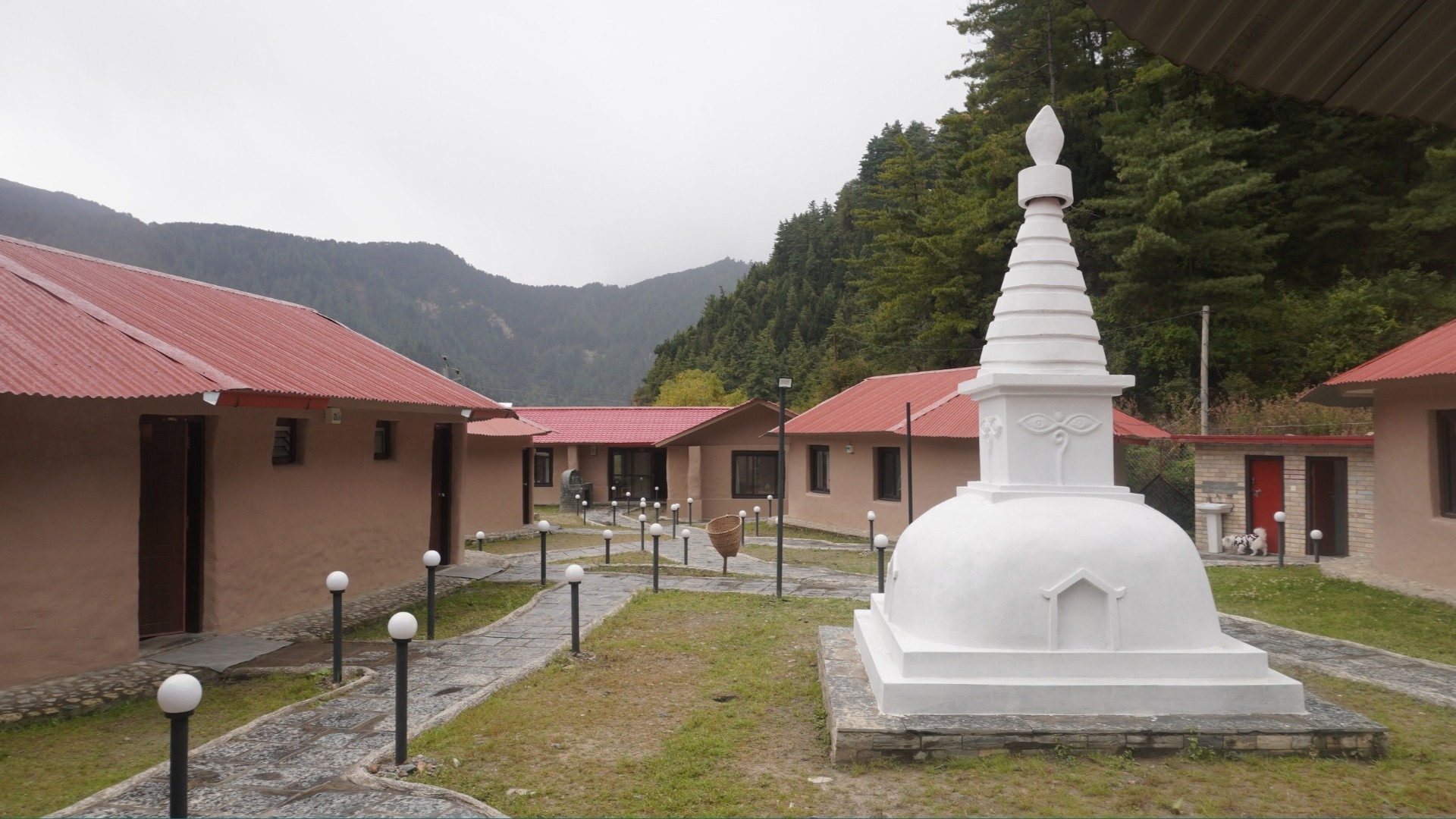In Mahendranagar and Jhalari markets, off-season button mushrooms are sold wholesale at Rs. 350 per kilogram, while during the regular season, the price drops to Rs. 100 per kilogram. Milky mushrooms, on the other hand, sell for around Rs. 400 per kilogram throughout the year.
A 29-year-old youth, Bir Bahadur Rana from Shuklaphanta Municipality–6, Kesaroul, has become a role model for self-sufficient farmers by adopting modern technology for mushroom cultivation.
Having completed an 18-month Junior Technical Assistant (JTA) agriculture course, Rana produces both seasonal and off-season mushrooms in high-tech tunnels, generating an annual income of more than Rs. 1.5 million. After deducting expenses, he makes a net profit of around Rs. 1 million per year.
Rana cultivates button mushrooms during the cold season and milky mushrooms during the warmer months. According to him, milky mushrooms are ready for harvest within 15 days of spawning, while button mushrooms take 20 to 25 days. He had also experimented with pink mushrooms, but due to limited market demand, he has currently suspended their production.
In Mahendranagar and Jhalari markets, the wholesale price of off-season button mushrooms reaches Rs. 350 per kilogram, while the seasonal price is around Rs. 100. Milky mushrooms are sold for Rs. 400 per kilogram. As demand continues to rise, he has been supplying mushrooms to markets outside his local area as well.
Demand for mushrooms peaks during weddings, feasts, and festivals. Currently, Rana delivers mushrooms to buyers using his motorcycle. He began his mushroom farming journey in 2020 (BS 2077) while still pursuing his JTA studies, applying the practical knowledge he gained at school. Starting modestly, he used available household utensils to boil straw, dried it on a bed frame, prepared 25 straw blocks, and inoculated them with mushroom spawn. Encouraged by good yields, he decided to expand the venture commercially.
Following his initial success, he built a small bamboo shed and started cultivating mushrooms using 500 straw blocks. After finding a steady market, he was motivated to scale up his business. Today, Rana owns six iron-framed high-tech tunnels, each producing mushrooms continuously throughout the year. The processes of cutting, boiling, and drying straw are mechanized. Although he received some government grants for tunnels and equipment, most of the investment was made from his own earnings.
He says that the use of modern technology has significantly reduced time, labor, and production costs. His wife and other family members actively assist in the farm, and during peak periods, he hires workers on a daily-wage basis.
“Unsold mushrooms can be dried and sold at nearly double the price,” Rana shared. “I’m planning to purchase a modern electronic dryer for that purpose.” His mushroom farming now involves an investment of around Rs. 2 million, and he plans to expand into oyster mushroom production in the near future.
Rana emphasizes the importance of using high-quality spawn for better yields. “Good-quality seed ensures better production, while poor-quality seed results in weak crops,” he explained. “So, spawn producers must pay attention to quality.”
He also noted that mushrooms, like other crops, are vulnerable to diseases and require timely treatment. Rana credits his success to the agricultural knowledge he gained during his studies. “To further expand mushroom farming, modern training and technology are essential,” he added. “Agricultural authorities should take greater interest in promoting this sector.”
Through his determination and innovation, Rana has become an inspiration for other youths—proving that it is possible to achieve success using modern technology while staying in one’s own village.


